Rohingya-Muslim.jpg">Rohingya-Muslim-300x168.jpg" alt="Rohingya-Muslim" width="300" height="168" />SITTWE, MYANMAR, 20 Dhul Hijja 1433/ 05 November 2012 (IINA/MINA) – Crammed into squalid camps, thousands of people who fled communal violence in Myanmar face a deepening humanitarian crisis with critical shortages of food, water and medicine, aid workers said.
More than 100,000 people have been displaced since June in two major spasms of violence in western Rakhine State, where renewed clashes last month between Rakhine Buddhists and Rohingya Muslims uprooted about 30,000 people, AFP news agency reported. Dozens were killed on both sides and thousands of homes were torched. Even in the camps near the state capital Sittwe housing ethnic Rakhine Buddhists people are going hungry. “We don’t have enough to eat,” said Phyu Ma Thein, 33. “The abbot gave us a bowl of rice but we have no pots, no plates. We have nothing. We’re just trying to survive.”
The situation is likely to deteriorate, the UN Refugee Agency warned this week, as a new influx of refugees pushes the camps “beyond capacity in terms of space, shelter and basic supplies such as food and water”. “Food prices in the area have doubled and there are not enough doctors to treat the sick and wounded,” it added. Most of the displaced are Rohingya, described by the UN as among the world’s most persecuted minorities. Seen by the government and many Burmese as illegal immigrants from neighboring Bangladesh, Myanmar’s 800,000 stateless Rohingya have long faced severe discrimination, according to rights groups. Their displacement camps are at crisis point, according to Refugees International (RI) which estimates that even before last month’s flare-up nearly a quarter of children in the squalid facilities were malnourished.
“Conditions in these camps are as bad if not worse than ones in Eastern Congo or Sudan,” Melanie Teff, a researcher with the charity who visited Sittwe in September, told AFP from London. “Child malnutrition rates are startlingly high. There’s an urgent need for clean water and food. If further aid does not come through there will be some unnecessary deaths,” she said.
Also Read: Pakistan Condemns Israeli Settler Attacks in West Bank, Al-Aqsa Storming
With tens of thousands of Rohingya in outlying villages struggling to make a living since security collapsed after June’s unrest, Teff fears official camps could be overwhelmed by a new wave of refugees over the coming months. Myanmar, which is opening up after decades of secretive junta rule, has said it has to accept aid from Muslim countries or face an international backlash. That concession by President Thein Sein last month came despite a series of angry protests by Myanmar Buddhists against efforts by a world Islamic body to help Muslims affected by the violence in Rakhine.
But the flow of aid is still sluggish to the tinderbox province. Compounding the immediate need for essentials such as rice, water and oil, aid workers say refugees are facing a mounting psychological toll with terrified children bearing the brunt. “They lost their houses in the fires. Children cannot be left alone like before. So they’re depressed,” said Moe Thadar, a local Red Cross worker. With tensions still at boiling point despite beefed-up security, the relief effort is in jeopardy and the outlook for peace is grim unless the two communities can somehow reconcile, according to Teff. “As it stands there is a total lack of hope for the Rohingya. They have been rejected by many countries. They have suffered all around,” she said. “The only way out is for the international community to act on the current situation.”
The UNHCR said the recent bloodshed spurred several thousand Rohingya to take to rickety boats this week in the hope of finding shelter at camps on the coast near the outskirts of Sittwe or escaping the country altogether. But tragedy awaits even in flight, as around 130 people went missing after one boat sank off the coast near Bangladesh’s border with Myanmar while carrying Rohingya refugees heading for Malaysia. “Humans need shelter, a place to sleep and eat,” said Myint Oo, a displaced Muslim who has lost his house and fishing business. “If you cannot eat and sleep, it’s worse than dying.” (J-001).
Also Read: China Criticizes US-Drafted UN Gaza Resolution as Vague, Abstains from Vote
Also Read: Former Bangladesh PM Sheikh Hasina Sentenced to Death





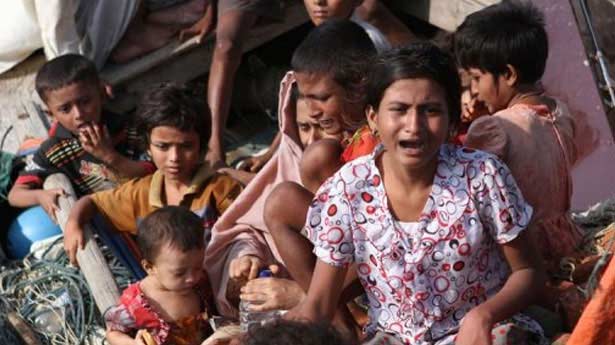


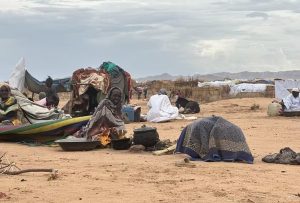







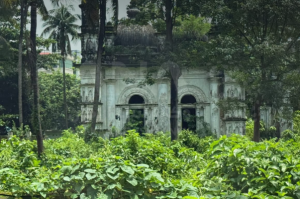
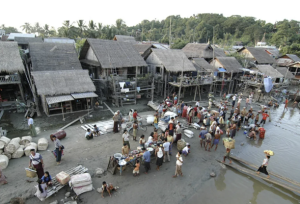
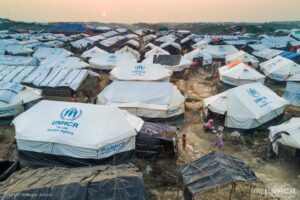
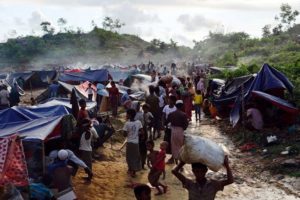











 Mina Indonesia
Mina Indonesia Mina Arabic
Mina Arabic